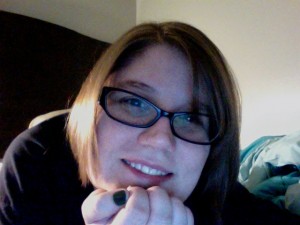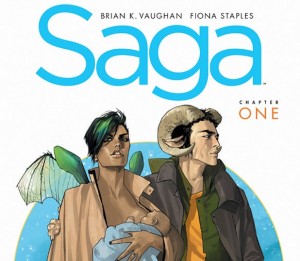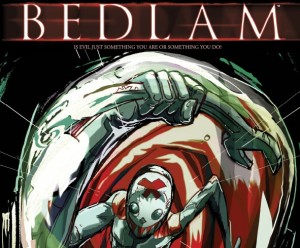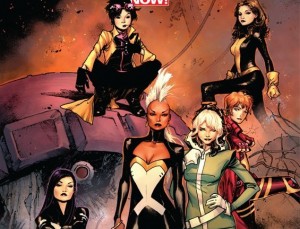[I asked Kelly to look into, and comment on, the situation with Ed Kramer, the allegations against him, and the proposed Dragon*Con boycott. As you might know, she is an academic. What you might not know is that one of her areas of specialty is rape culture. I believed she would see this situation differently than most writers I could assign the task to. Many of us have been to Dragon*Con, and this situation can set precedence for all types of conventions across the country. (Larry)]

Draon*Con – Ed Kramer
My primary research area is literature. My secondary research area is rape culture. This is why I’ve been approached to write an article regarding the recent boycott of Dragon*Con started by Nancy Collins, and to discuss the widespread implications of the discussion surrounding the boycott and the founder and co-owner of the Con, Ed Kramer. This article will include discussion on subjects such as child molestation, rape, and other emotionally triggering topics.
Let me start by saying that I’ve never been to Dragon*Con, and I’m only technically familiar with the Con tangentially; one of my favorite authors is a long-time attendant and has regularly encouraged her fans to be part of the parade and festivities every year. I’ve never really had the desire to travel to Atlanta for any reason, even for the Con, so I’ve never bothered to go, although I’m aware that it exists. It’s just never really been on my radar.
But I understand that Dragon*Con (that all Cons, really) provides a safe space for fans of the sci-fi/fantasy genre, a place where fans can truly be themselves and dress in cosplay and have a great time without risking the judgment, stares, or jeers. I fully support safe spaces and I always will.
However, it has recently come to my attention that Ed Kramer stands accused of multiple counts of child molestation, none of which he’s officially stood trial for, and that he continues to hold stock in Dragon*Con and continues to make money from the Con every year. That being said, Nancy Collins has recently led a growing group of people who have started a Facebook page promoting a boycott of Dragon*Con for the very reason that the continued income Kramer receives allows for him to continue to pay legal fees that allow for him to put off trial and sentencing indefinitely.
I could write pages detailing why Ed Kramer’s financial success is part of the issue and why the American justice system is also part of the issue. Both of these things are problems and both of them are very broad subjects. But what I want to focus on is the discussion revolving around Kramer and those who claim that he’s innocent and that Dragon*Con should not suffer a boycott.
Regardless of Ed Kramer’s guilt or innocence in these allegations, he has the right to a trial by jury. To survivors of sexual assault, he has the responsibility to accept trial by jury. If he’s truly innocent, what does he have to hide? The largest problem with the dialect of this case is that Dragon*Con supporters and Kramer supporters are calling the alleged victims liars, claiming that they’re out for attention, money, etc.
Stop. Stop right there. You should never, under any circumstance, naturally assume that a victim of sexual assault is lying. Do false accusations happen? Yes, but their occurrence is right around 0.6%. This makes them statistically null and void. False allegations in sexual assault happen so rarely, they don’t even make up one single percent of accusations. So the suggestion that the victims are lying is just a continued perpetuation of a culture where we protect rapists instead of protecting the victims whose lives they’ve effectively ruined.
When talking about rape and child molestation accusations, any time you cry out that “They must be lying for attention or for money!!”, you effectively silence the victim. I cannot stress enough the importance of keeping that thought to yourself. When you accuse victims of lying, you further the psychological torture they’re already attempting to endure, and you astronomically heighten the chance that they will start engaging in damaging behaviors (i.e. self-mutilation, compulsive behaviors, etc.) and even commit suicide.
Rape is an act of power, not pleasure. And when one person rapes another, they are doing so because they know that they have the power in that situation, and they know that their victim is weaker than they are, be it physically, mentally, or a combination of the two. When a child is raped, and then silenced because they must be “false allegations,” you have essentially taken any power that they had by reporting the assault and you’ve put them right back where they were before: in a position of subordination wherein they are fully aware they have no power, and wherein the only way out is through extreme measures.
I don’t care who is being accused of rape or molestation; that person must stand trial. And if that person is able to slither out of trial by a number of legal loopholes and thanks to his/her extensive bank account, that’s a big problem. If Ed Kramer is innocent, he has the right to seek restitution from his accusers. But that is one very large if. Remember: only 0.6% of allegations are false.
If Ed Kramer is guilty, he is guilty of far more than just molestation; he’s guilty of wringing what he wants out of the legal system, he’s guilty of a massive cover-up which he used his own fortune to do, and he’s guilty of lying to millions of people and ruining the lives of a handful of children who are now grown and will never be the same. But the only thing he can technically go to jail for is the molestation.
I can’t say I fully support a boycott of Dragon*Con. In an ideal world, the other stakeholders would be able to cut Kramer off from the funds and continue on with the Con as they have been. But considering the fact that kicking Ed Kramer out isn’t likely to happen, maybe a boycott is the only way to convince Ed Kramer that:
1.) We stand with the victims,
2.) We’re sick of his endless leaps through loopholes to avoid trial, and
3.) We don’t want our money going to his legal circus.
Regardless of your stance on the boycott, it’s glaringly obvious that something must be done about this situation. If you’re as outraged as I was to discover Ed Kramer’s past, there are a number of things you can do to let Dragon*Con know that you don’t want your money going into his pockets.
Write them a letter, call them out on Youtube, call them out on Facebook and Twitter and Tumblr. Get a group together to raise awareness of this situation and stand peacefully outside of Dragon*Con with signs letting the Con-goers know what the founder of their Con is being accused of, and let them know that their money is supporting him. Boycott if you want to. But the most important thing in this case is to raise awareness of the allegations against Kramer and to lend your support to the survivors. Let the survivors know that we believe them, and we stand with them. And let Ed Kramer know that, too.
If you or someone you know has been sexually assaulted, please report the crime and get help.








